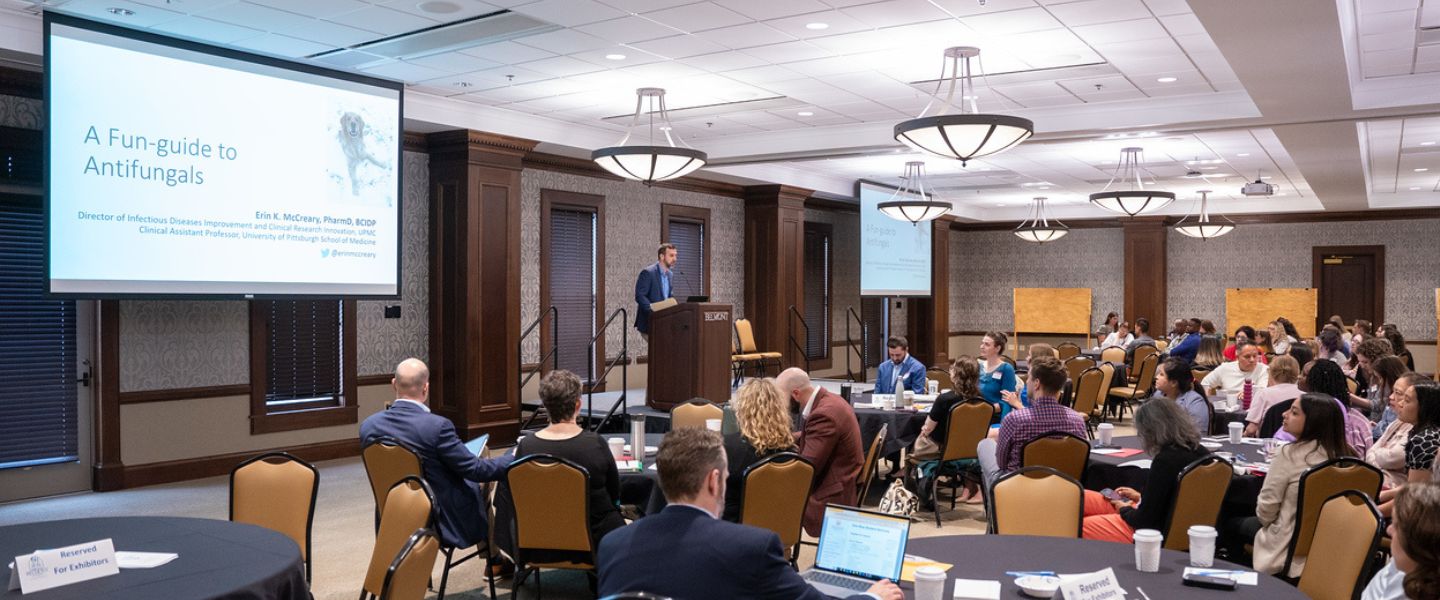Symposium Tackles Antimicrobial Resistance Through Interdisciplinary Collaboration
Antimicrobial resistance poses a growing global public health threat, making the need for robust antimicrobial stewardship programs more crucial than ever. To address this challenge head-on, Belmont University's College of Pharmacy and Health Sciences hosted the 8th Annual Middle Tennessee Antimicrobial Stewardship Symposium this May.
The symposium attracted 150 healthcare professionals from across Tennessee and the Southeast, including pharmacists, nurses, physicians, epidemiologists, infection preventionists, residents and students. The diverse array of attendees underscored the interdisciplinary nature of effective antimicrobial stewardship.
"The dynamic and diverse podium presentations provided strategies and knowledge applicable to all stewardship programs, regardless of size, location or affiliation," said Dr. Athena Hobbs, chair of the symposium's planning committee. "We are proud to offer content that will continue to uplift the growing field of antimicrobial stewardship."
The symposium featured a star-studded lineup of speakers representing renowned infectious disease experts from institutions across the country. Keynote presenter Dr. Whitney Buckel, a system antimicrobial stewardship pharmacist manager from Intermountain Health, explored the potential applications of artificial intelligence in antimicrobial stewardship programs.
Other platform presentations covered critical topics such as antifungal therapy, antimicrobial resistance mechanisms in multi-drug resistant gram-negative pathogens, and antimicrobial stewardship approaches for immunocompromised patients. A highlight was an interdisciplinary panel that dispelled long-held myths within the infectious diseases community.
"Our panel discussion highlighted the ever-changing world of infectious diseases and was so informative," said Belmont Assistant Professor Dr. Jarett Worden. "I'm proud this year's symposium focused on the interdisciplinary approach to antimicrobial stewardship."
In addition to lectures, participants engaged in roundtable discussions and poster sessions facilitated by pharmacists, physicians and nurses. These interactive sessions provided valuable opportunities for attendees to dive deeper into specific antimicrobial stewardship topics in a small-group format.
The symposium's diverse programming and interdisciplinary approach reflect Belmont's commitment to equipping future healthcare leaders with the knowledge and collaborative skills needed to tackle complex public health challenges like antimicrobial resistance.
"Antimicrobial stewardship requires a team-based approach with expertise from various disciplines,” said Dr. Erin McCreary, a platform presenter from the University of Pittsburg. “Events like this symposium are crucial for sharing best practices and ensuring we stay ahead of the curve in preserving our life-saving antimicrobials."
By convening top minds from multiple healthcare fields, the 8th Annual Middle Tennessee Antimicrobial Stewardship Symposium exemplified Belmont's vision of driving innovative solutions through interdisciplinary problem-solving rooted in social responsibility.

